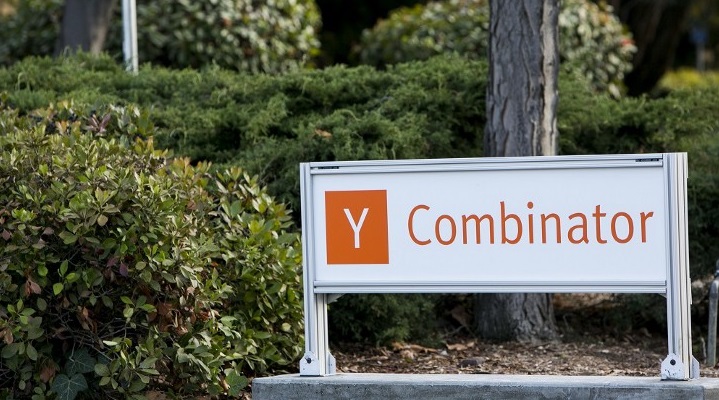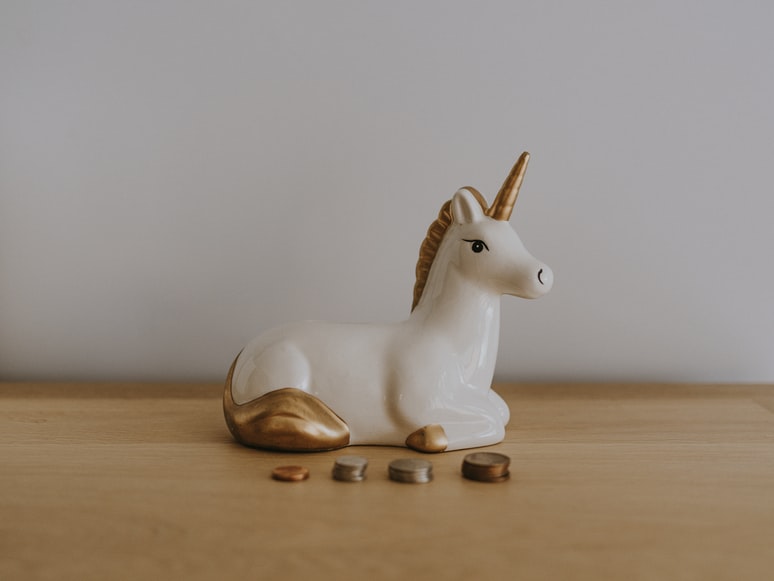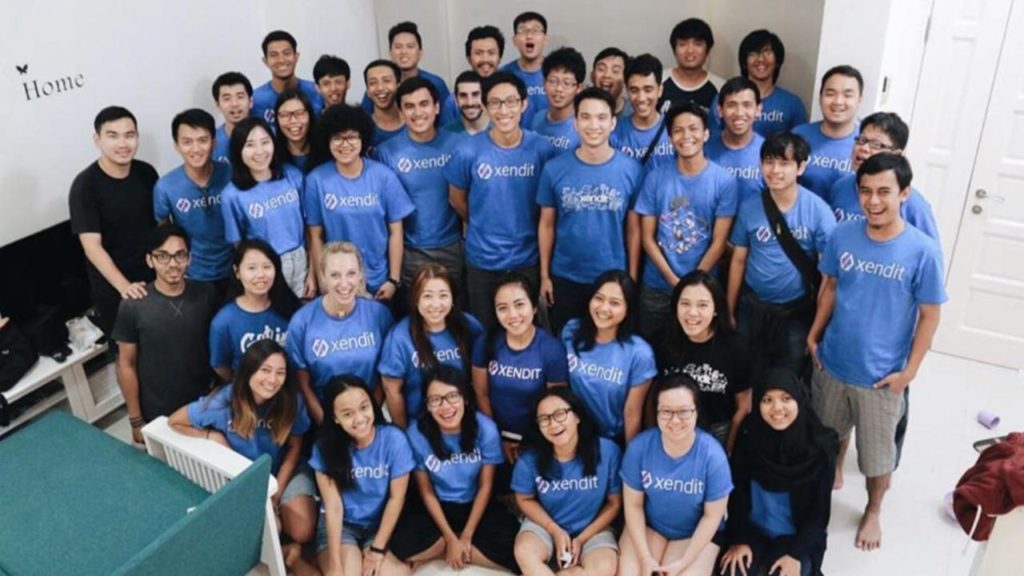Despite Xendit's Unicorn Status, Moses Lo Still Concentrates on Building Organizational Fundamentals
At Xendit, Moses aims to lay down infrastructure, therefore others can build businesses on top
This article is a part of DailySocial’s Mastermind Series, featuring innovators and leaders in Indonesia’s tech industry sharing their stories and point of view.
It is undebatable that working culture has a powerful influence on people when it comes to a decision to take a new job at one company. This is also what Moses Lo, Xendit's Founder and CEO, grasped as he was working for a company or starting a new one. At Xendit, he always makes sure that the organizational fundamentals are met. He focused on building the internals in order for the company to better serve the externals as customers.
It was all about passion for Lo when he started this business, to create something that can drive the market for over 20 years. He built a gateway for payment to simplify and secure business transactions. With this idea, Xendit has become the first Indonesian startup to be accepted into the Y Combinator program.
Lo has already been exposed to technology at a young age. Growing up, he became interested in finance and banking stuff, along with the tech background, which led him to fintech. He graduated as an honor student of commerce, information system management, and finance at the University of New South Wales. Continuing his business saga, he attended Berkeley for a master's degree in business. He had his experience working with two of the best companies, teaching him all that matters to enter the tech industry.
27-year-old Lo started Xendit in 2015, the company has grown multiples since then and is listed as an Indonesian unicorn this year. Today, Xendit’s infrastructure has been widely used by companies in Indonesia, the Philippines, and Southeast Asia.
Here’s an excerpt of our discussion with Moses Lo, Xendit’s front person, about his vision and achievements in the tech industry.
When did you start pursuing a career in the tech industry?
I have wanted to be in the tech industry since I was 13 or 14 years old. It involves a lot of playing computer games and building computers. So, I always wanted to do something about technology. Growing up, I got really interested in finance and banking stuff, then, I studied Information Systems in the University, which led me to fintech today. Afterward, I worked with Boston Consulting Group (BCG) and Amazon for a while before deciding to start my own company.
What was it like, your life before Xendit?
I come from a family of entrepreneurs. The reason I went to BCG was that they were really good at teaching you similar skills in business. They taught me how to think, how to present information well, how to speak to senior people, those who were older, and much more important than me. Those are really useful kits.
Then, I went to Amazon for a short period of time. Amazon, compared to the other companies, competed really hard for every inch of territory that they got. They won e-commerce in the US, they’re winning cloud services everywhere. They're really good at this competitive space and I wanted to learn in a company that is very good at competing. In the meantime, I also learn how to build a scalable startup culture and how to build a very efficient cohesive team in executing business.
Xendit happens to be your first venture capital-backed company. Actually, what was the idea behind Xendit’s creation?
When we were starting Xendit, I noticed some things that happened in other countries. There is this small window of history where the companies that are built will define technology and business for the next 15 to 20 years. They set the rules for how technology works. Therefore, I wanted to come home and build infrastructure and set rules in a way that would be good for Indonesia and Southeast Asia for the next 20 years.
This is really exciting. I think of it like we’re building paved roads that once were dirt roads. We’re laying down infrastructure, therefore others can build businesses on top.
You’ve spent most of your life not in Indonesia. Aside from its great potential, what drives you to build a business in this country? How can you ensure to conquer this market?
I am, myself, half Indonesian. Although I didn’t spend most of my childhood here, I spent most of my adulthood in this country. It is more like my passion to build something in Indonesia, it just makes sense. Along the journey, I also found some good friends I really wanted to build with. I didn’t think we were gonna conquer. I didn't think we knew we were gonna win. It was just something we were so passionate about. It started out with passion above anything else.
This year, Xendit has achieved unicorn status. Have you ever thought about Xendit being a unicorn before?
I think "unicorn" or valuation is a lagging indicator of value that we can provide the world, so I never thought of us becoming a unicorn.
I thought about whether we can make something that scales to have a positive impact for millions and millions of people over the next 10 to 20 years. And if we can make it, valuation will certainly follow.
I never really cared about unicorn status, and the thought remains. What I really care about is, are we able to provide value to customers, because that’s what matters most. If we stay on that true path, everything else will follow. I do think about valuation, but not as a mark for some milestones or something to chase. It is just part of the business. I spend most of my time thinking about products, customers, and Xendit people.
What do you think is the most essential value a company should have in order to reach sustainability in this tech industry?
It’s really simple, everything (tech, product, sales) comes down to people. It's all a reflection of our people. For me, the most important thing is to build an organization that can attract and retain the right people. Product is important, yes, but it is a function of the people who build it, it also applies to sales and customer service.
I spent a lot of my time thinking about the organization itself, the people in it, the culture we breathe, the way we make decisions. Once we get that right, everything else, even if I didn’t control the decision-making down the line, will work out.
Culture is what attracts and retains people in the long run. It’s not only about table tennis and food, which we have. It’s mainly about decision making, the sailors you build, how you get rid of politics in organization, the recruitment process, the compensation settlement and so on. Culture was built upon the answers of all these kinds of big questions.
Since Xendit's most valuable asset is its people, do you have a certain approach while recruiting people?
Do you know underdogs that were willing to work hard? A lot of us do not come from the best "something", but we have something to prove to the world and we’re happy to work hard. We really care about the culture and how we build and maintain the organization.
If I have to break it down into parts, the first one is culture fit. It includes hardworking, friendly, helpful, no politics, or the underdog's stuff. Furthermore, the work ethic. We are aware of the fact that a lot of people don’t know anything about the payment. In Xendit, we have everything for you to learn. Also, we have what we call Trial Day as part of our recruitment process. I think this one is not applied in most companies. We’ll have you work with us for a whole day, with real problems. Instead of being interviewed, they will have the opportunity to interview Xendit people. This way they will know how it feels to work at Xendit.
What kind of challenges do you encounter along the journey?
Lots of challenges, one of the hardest ones is recruiting when you’re small. It’s long before you’re a big company with a highly reputable business. No one knows who you are. We developed a model where we hired a group of friends. Our first ten hires were actually a group of friends that were given an office for engineering. In my calculation, maybe one or two will stay, but instead, all 12 people joined. For the first few years, all our engineers were basically two groups of friends. We’re very purposeful for hiring pockets of friends wherever we can, that is also the very beginning of our team in some countries.
Xendit has been providing payment infrastructure and already exists in Indonesia and the Philippines. How do you see the market potential and possibility to expand?
When we look at payment or the merchant payments side, we’re still quite premature. The Indonesian digital payment percentage is still less than 10% of the total GDP compared to China or the US, which is closer to 10-15%. I think we have multiple orders of magnitude, there’s still massive growth left in every corner.
The way I look at it, the opportunity in front of us is bigger than the opportunity that we’ve seen so far. This is a pretty exciting place to be and we’re in a very good position to be the top one or two players in Southeast Asia.
I found a website containing some of your writings. Should I assume you like to write in your free time or do you have other kinds of hobbies?
The reason I did those is, I kept it more as a note for myself. Mostly, I write things that I believe at that time and I wanna see if that’s still true a few years later. It's to measure myself and see if I make the right decision. Another reason is, a lot of people tend to ask me the same questions and I noticed that I’m answering the same question over and over again. I figured, if I just put it out there, people can simply read and that knowledge can spread faster.
At Xendit, we hung out a lot together, we did travel, trips, and everywhere. We really enjoy each other’s company even outside the workplace. That’s also how we build connections.
There’s a phenomenon in the tech industry where Founders are starting to enter the market as an investor. What do you think of this? Do you think as a Founder, you are also obliged or just naturally grow interested in investing?
I think the obligation is not necessarily to invest, but the obligation is to help. I don’t think it’s just the founders, they may have a lot of press and the credit. I think any early employee at a company, those who’ve built businesses have an obligation or at least a desire to pay it forward. Something I really love doing is helping new entrepreneurs trying to figure out how to raise money, deal stuff with the boards, or find product-market fit.
One thing I observed when I lived in the U.S. was, Silicon Valley, one of the best things has, is the freedom of high-quality information between people. Whereas in Asia, when we have a good idea, traditionally, we want to keep it to ourselves because we’re scared someone will copy us and take it away. We try to own things. I want that culture to change into a more sharing culture instead of keeping ideas for yourself.
The obligation is for founders to help other founders. Investing comes as a byproduct, I try to do as little investment as possible because I love my normal job. I think Investing can be somewhat distracting. I do it a lot for Xendit or on behalf of Xendit. It’s quite a different approach from other founders.
As one of the first Indonesian startup graduates in YCombinator, what do you think is the important role of accelerator programs to early-stage startups?
We’re the first Indonesian company in YCombinator, so I’m proud of that. YC is extremely helpful for early-stage companies. I don’t know every accelerator so I cannot say for every accelerator. But I can say that YC is an extremely effective accelerator. To begin with, in terms of dealing with the pressure cooker of hanging out with the best company on earth. Also, YC gives some of the best advice, as it is run by people who actually built a business before. Another thing is YC has built the best network effect; the best companies attract the best investors and vice versa.

In terms of accelerators, I think all entrepreneurs have to ask themselves, ‘what do I really need?’ and ‘does it provide that to me?’ Not all accelerators can be really good at pressure cookers and capable of bringing you the billion-dollar investors. It all depends on the founder’s need and the accelerator's quality.
As an experienced entrepreneur, what can you share about the struggle and survival story for those tech enthusiasts out there wanting to build their own legacy?
I have three things to say. First, find product-market fit. Most entrepreneurs already have a product in mind and hope that they can sell it. However, on the way to get product-market fit, more often you fall in love with the customer problem and you feel the urge to solve it. That’s one of the best ways to find product-market fit.
Next, your first ten people will define the culture for the next thousands. I see things that happened now at Xendit, which I have no control over anymore. As we don’t control what someone does in a small team now that we’re hundreds of people big. The culture propagates and replicates itself. Hence, I don’t think people are conscious enough about that early on.
The third, in terms of struggle and survival, is to find yourself the mentors. In my case, I have a mentor for each category, 2 years ahead, 5 years ahead, and 10 years ahead. I think that’s really helpful in my journey. The 2-year mentor can give me a sense of what I need to do tomorrow, the ten-year mentor can say "Make sure you make the right big decision!", "Which industries do you want to build the startup in?". Then, the five-year-ahead mentor can give you a little in between of both in terms of my plan for the next five years and so on. I always try my best to maintain these three buckets of mentors.
Sign up for our
newsletter
 Premium
Premium


